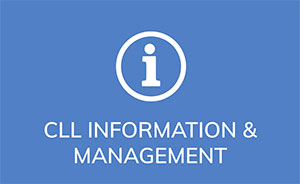Authored by Dr. Brian Koffman
BTK Inhibitors have revolutionized the treatment of chronic lymphocytic leukemia/small lymphocytic lymphoma (CLL / SLL) with dramatically improved outcomes.
Pirtobrutinib is a new BTK inhibitor that binds differently (non-covalently) to BTK than the three approved BTK inhibitors, ibrutinib, acalabrutinib, and zanubrutinib. They all bind covalently at the same site, C481. For all the approved BTKis, if that binding site mutates its structure to prevent the binding of one of the drugs, thereby rendering that drug ineffective, it almost certainly does the same for all three. This means if one of these medications stops working, the other two cannot be expected to rescue the patient.
Fortunately, that is not usually the case with pirtobrutinib, as its ability to inhibit BTK is not dependent on the binding structure of C481. Indeed, studies have shown that such challenging-to-treat patients can expect an average of about a 19-month remission with pirtobrutinib, as outlined in this research from ASH 2022.
But pirtobrutinib is not approved by the FDA for chronic lymphocytic leukemia/small lymphocytic lymphoma (CLL / SLL). On January 27, 2023, it was approved but only for use in relapsed or refractory mantle cell lymphoma (MCL) after at least two lines of systemic therapy, including a BTK inhibitor.
So, insurers have routinely refused to cover it for many CLL / SLL patients who would have benefited.
That is changing.
On June 12, 2023, the highly regarded National Comprehensive Cancer Network or NCCN Guidelines Version 3. 2023 for Chronic Lymphocytic Leukemia/Small Lymphocytic Lymphoma recommended pirtobrutinib as second-line or third-line therapy in various clinical settings.
Their Category 2A (based upon lower-level evidence, but there is uniform NCCN consensus that the intervention is appropriate) recommendation has immediately impacted patients’ ease of access to this potentially lifesaving medication while it goes through the lengthy process of registration trials for approval.
CLL Society welcomed this news and advocated for this change at the NCCN.
We are, however, disturbed that it did not receive FDA accelerated approval pending confirmative full approval. Issues like this are one of the reasons why we established the CLL Society Policy Institute.
But for right now, people with CLL / SLL can celebrate having another potent and very well-tolerated option for treating their disease when it relapses.
Stay strong.
We are all in this together.
Brian Koffman MDCM (retired), MS Ed (he, him, his)
Co-Founder, Executive VP, and Chief Medical Officer
CLL Society, Inc.

